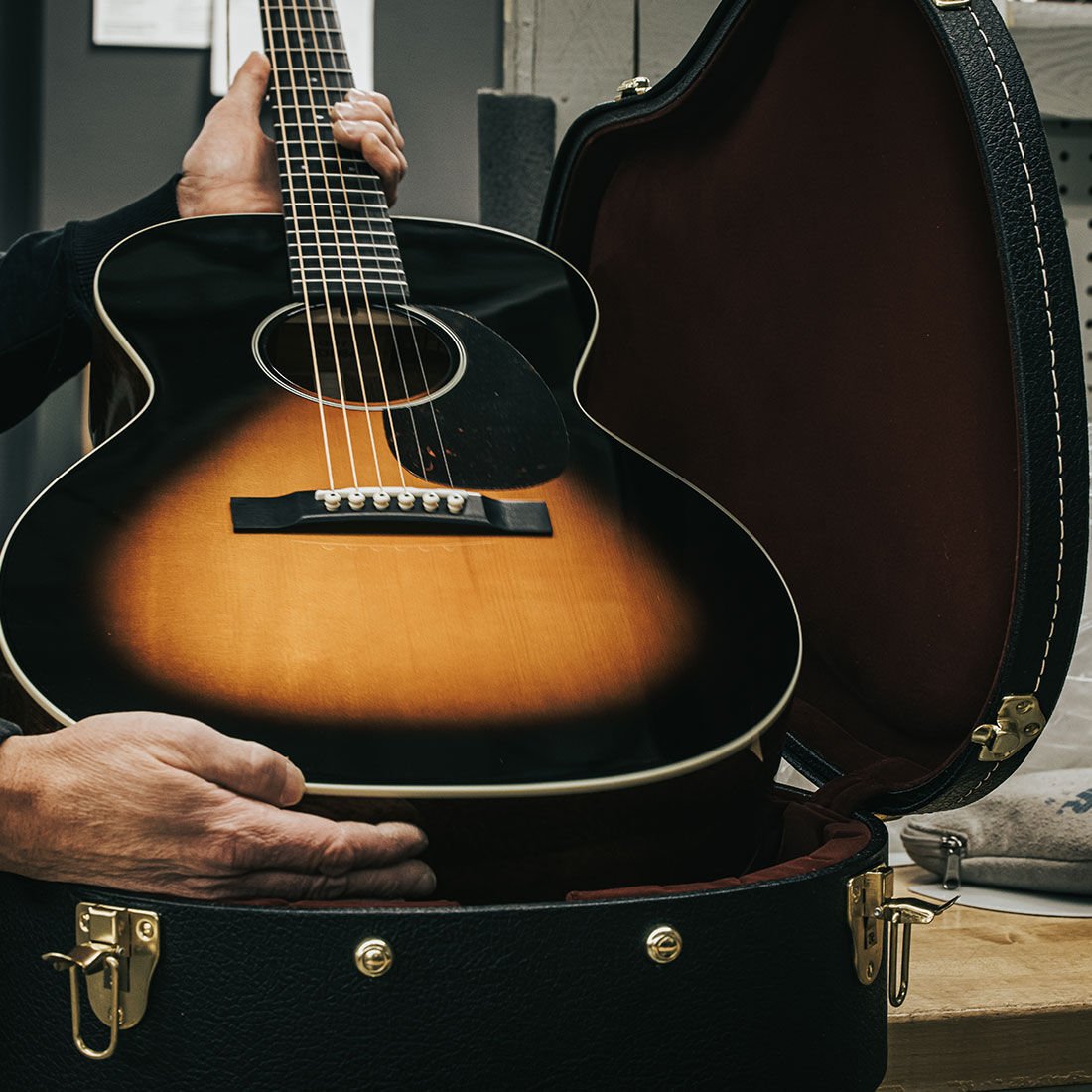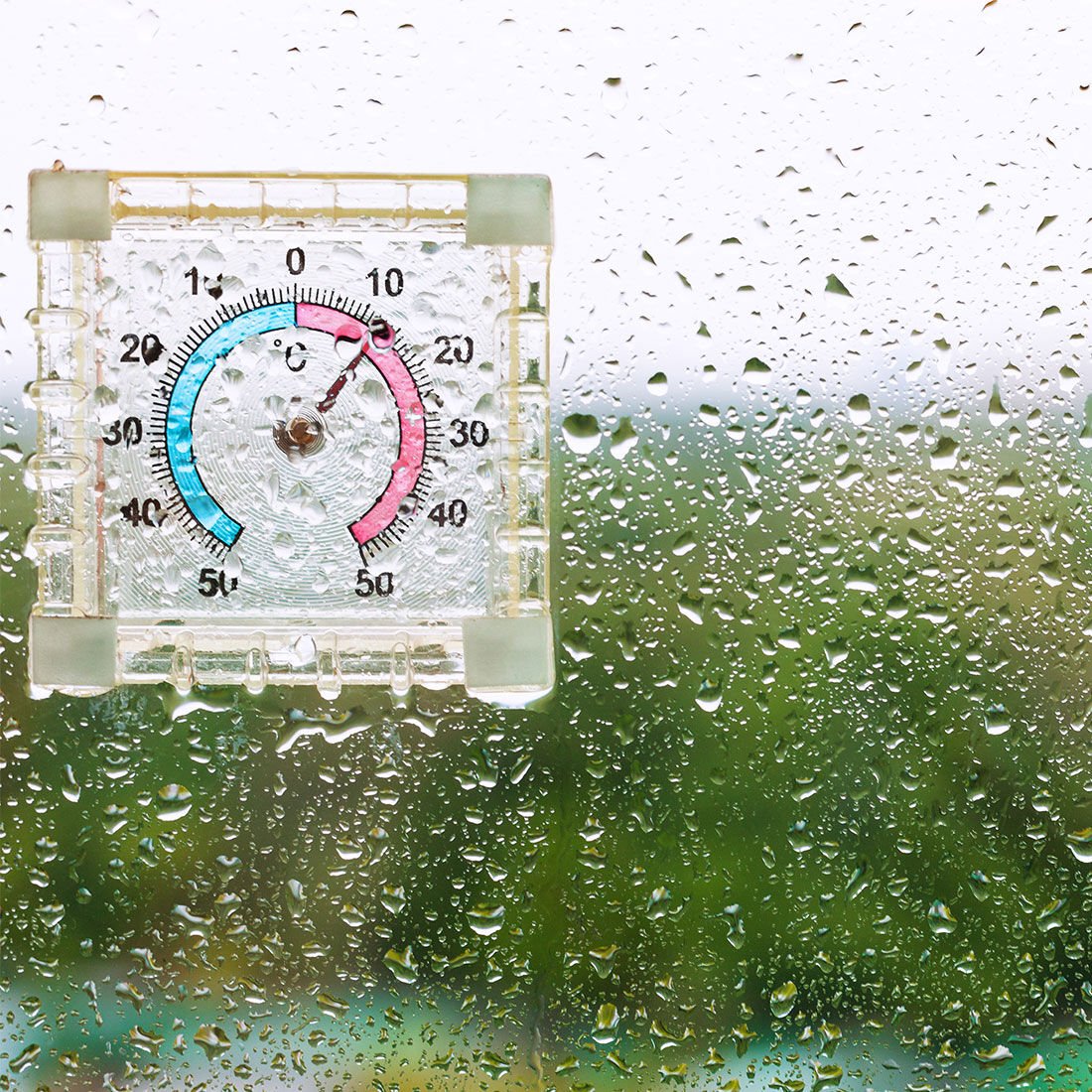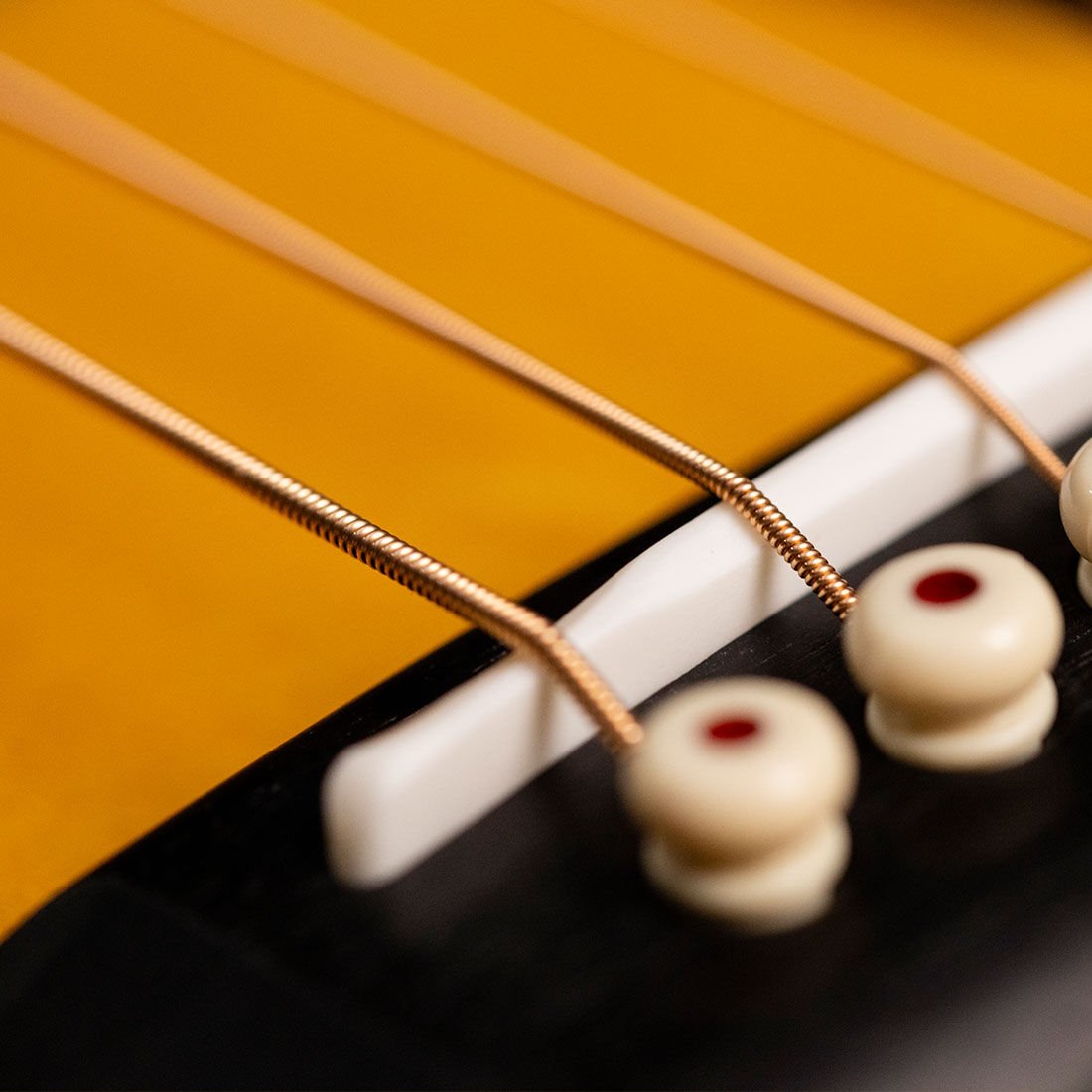Tips & Tutorials | May 10, 2023
Acoustic Guitar Maintenance Guide

Hey there, fellow guitar enthusiasts! We’re here to share some tips and tricks on how to keep your beloved instrument looking and sounding top-notch. After all, you use a guitar to write your story with music, and your music can make the world a better place. So, you need to know how to care for a guitar because the world needs you! This guide will cover essential topics, including proper guitar humidity, how to clean an acoustic guitar neck, and how to polish a guitar.
With our acoustic guitar care tips, your guitar will stay in the best possible shape for years to come.

How to Clean an Acoustic Guitar
First things first, let's talk about cleaning your guitar. Routine cleanings are essential to keeping your guitar in the best shape possible. Here are some tips to keep your guitar looking great.
Wipe the surface: We know it’s not always top of mind when your done playing, but it’s a good habit to wipe down your guitar after every use. A simple wipe down with a soft cloth can go a long way in preventing dirt and grime buildup. Gently wipe the guitar down on all sides, up the neck, and over the strings and tuning machines. You basically want to wipe any area that any part of your body has touched so you get any of your skin oils that may be left on the guitar.
Polish the guitar: Some people like to use polish on their guitar to give it some extra shine. But keep in mind that the guitar’s finish is porous, so you don’t want to use a harsh polish with a lot of chemicals because you could do more harm than good. If you really want to use a polish, you can feel safe using the polish/cleaner that we sell in our 1833 Shop and on our website. It is designed to be used sparingly, and all you have to do is spritz a small amount on the guitar top and then take the soft cloth and wipe it across the surface in a circular motion. It cleans quickly and self-dries, so you just go over the surface lightly to make sure you get all the excess polish off. Then turn the rag over to the dry side and wipe it again, just like you would if you’re polishing your car or anything else. You can repeat those steps on the back and sides of the guitar. There are no abrasives in our polish, so you don't have to worry about it scratching the finish if your cloth is clean and free of debris. This is why it’s so important to wipe it down with a soft, dry cloth before you use polish.
Please be mindful when you are working with an instrument that has a satin finish. You don’t want to spend a lot of time rubbing a satin finish with a cloth because it will cause the finish will get too shiny, and you don’t want that with a satin finish.
Oil the fretboard: You can also condition or oil your fretboard. Why? To avoid having a dry guitar fretboard. Because there's no finish on them, they are basically raw wood with a little bit of stain, so it’s easier for them to dry out. You only need to do this a few times a year, depending on the humidity, just to make sure that wood stays moist, and it doesn’t crack over time.

How to Properly Store Your Acoustic Guitar
When you're done gigging or playing, the last thing you want to do is leave your guitar in a hot car. Hot temperatures and poor guitar humidity control can lead to cracked, warped wood. And figuring out how to repair a crack in a guitar can be difficult and expensive.
It’s best to store your acoustic guitar correctly to avoid the symptoms of a dry guitar and provide more safety for your beloved instrument. Here are some tips on how to store your acoustic guitar:
Achieve ideal humidity: The best humidity level for guitars is 45 - 55%, so reach this as consistently as possible to maintain optimum conditions. Knowing how often you should humidify your guitar can be tricky, but we will touch on this in the next section.
Keep it in its case: Get yourself a quality case for your guitar. This will protect it from dings and dents while helping maintain better humidity and temperature control.
Loosen strings during long periods of absence: If you'll be taking an extended break from playing your acoustic guitar, loosen the strings to lower the tension on the neck.
Avoid drastic temperature changes: Drastic swings in temperature are bad for your guitar. Keep your guitar in a place with consistent, moderate temperatures throughout the year.
Avoid storing near water: Don’t store your guitar in a basement or any area that can take on water. Acoustic guitar water damage can permanently ruin your guitar's wood and any electrical components.
Check on it: Check on your guitar consistently while storing it so you can spot issues before they get any worse.

How Humidity Affects Acoustic Guitars
This may sound boring, we know, but it's really important. Proper humidification is a significant factor in your guitar's well-being. If the humidity around your guitar is too low, it can cause the wood to dry out, which can lead to cracking or warping. If the humidity is too high, it can cause the wood to swell, which can affect the guitar's playability and intonation.
45-55% is the ideal humidity level for guitars to maintain their optimal condition, and 72-77 degrees Fahrenheit is the optimal temperature. We suggest investing a few bucks in a hygrometer and thermometer to monitor the relative humidity levels and temperature in your guitar's environment.

Acoustic Guitar Strings
Let's talk about strings, shall we? A guitar maintenance guide wouldn’t be complete if we didn’t! Strings are like the tires of your car, they may not be sexy, but your car is useless without them. Our best advice is not to wait until your strings break to change them. It’s best to put on a fresh set before they get too worn out. You’ll know when they need to be changed because they’ll start to look dirty and/or sound bad. We also recommend wiping down your strings with a soft dry cloth when you're done playing. Try to make this a habit. It will minimize the build-up of harmful oils and dirt that can prematurely age your strings, and you may not have to change them as often.
So, there you have it, some simple but effective tips on guitar care. Remember, taking care of your guitar is like taking care of a good friendship. Treat it with the love and respect it deserves, and you’ll enjoy a lifetime together. Rock on!
About Martin Guitar
C. F. Martin & Co.® has been making the finest handcrafted acoustic guitars for nearly two hundred years. For some of the biggest names and the most revered musical legends across every genre and every decade. And we’ve been doing it with pure artistic passion, a deep love for all things music, and an unwavering commitment to our community and the environment.
But most importantly, we’re still doing it… for you. For current and future generations of pioneers, rebels, and dreamers. For the beginners, the pros, and everyone in between. We believe music is an unstoppable force. It raises us up. Tells our truths. Gets us on our feet. Expresses our deepest heartaches. And our greatest joys.
So, we’ll continue to make the very best acoustic instruments and strings for as long as there are people like you who love music and love making it. We want to be there to help you tell your story. To help you share your music with the world. To help unleash the artist within.
We’re ready for the next two hundred years. Want to come with us?